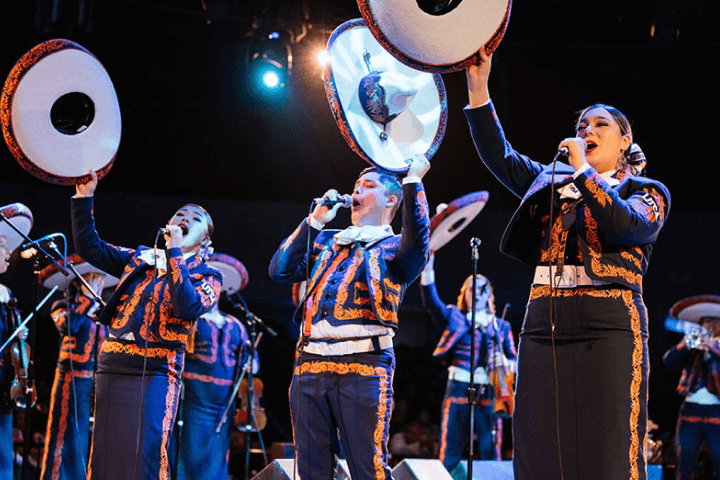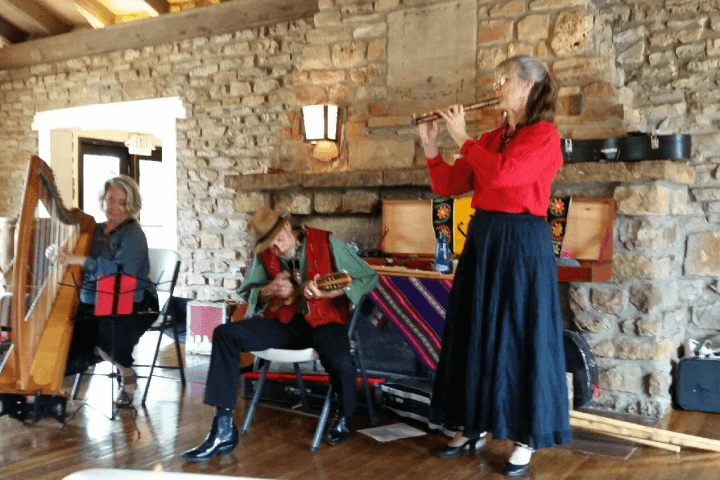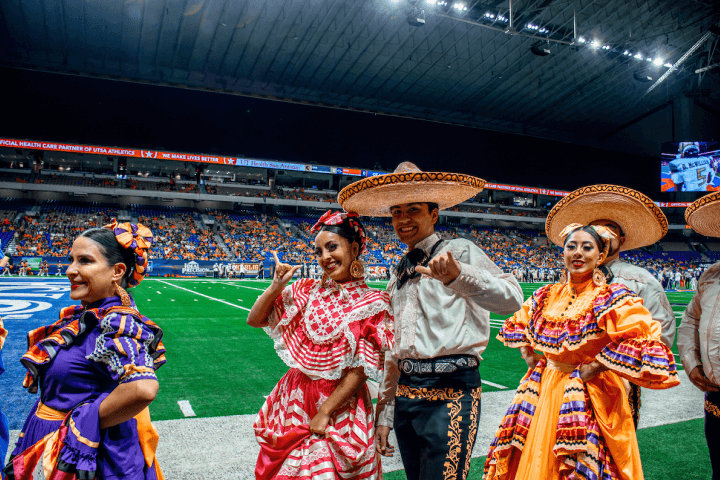
This performance—featuring dancers and musicians from the Guadalupe Dance Company, Mariachi Azteca de America and Conjunto Guadalupe— unveils the inspirational stories of Mexican American leaders.
We encourage you to visit this page in the future to stay up to date on future Hispanic Heritage Month news and events.
In recognition of Hispanic Heritage Month, UT San Antonio is featuring a variety of engagement opportunities for students, faculty, staff and the San Antonio community.

This performance—featuring dancers and musicians from the Guadalupe Dance Company, Mariachi Azteca de America and Conjunto Guadalupe— unveils the inspirational stories of Mexican American leaders.

Celebrate the bold flavors and rich stories of the Mexican borderlands, inspired by UT San Antonio’s Mexican Cookbook Collection. Events include a signature dinner, cocktail reception, book signing with chef Pati Jinich and cookbook-making workshops.

Join us for an evening of exceptional music with a concert by Mariachi Los Paisanos, one of UT San Antonio's most beloved and fastest-growing student ensembles! Enjoy this special performance in honor of Hispanic Heritage Month featuring traditional instrumentation, songs and trajes.

Join us for a concert that spans the continent in song, dance, and stories. The trio brings to the stage a dazzling collection of instruments, infectious rhythms, and haunting melodies. It’s a musical scrapbook of the Latin American repertoire that built Chaski’s distinctive sound and style.

Cheer on our Roadrunners as they face Rice University! Featuring a special halftime show with Ballet Folklórico Sol de San Antonio and Mariachi Los Paisanos performing with the Spirit of San Antonio Marching Band. Get tickets early - this game also celebrates Homecoming and Family Weekend, and is sure to be popular!

This collection, one of the largest of its kind in the country, includes nearly 3,000 cookbooks from 1789 to the present. Peruse digitized selection from the collection online, including handwritten recipe books providing an intimate view of domestic life and Mexican culinary culture.
Visit our Hispanic Heritage Month category page on RowdyLink for information on programming sponsored by academic and student organizations for the UTSA community.